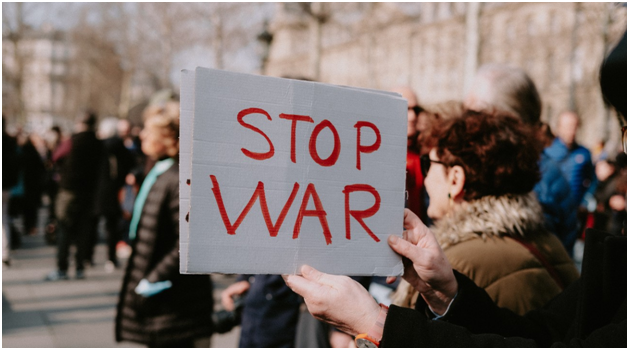Late last year, Russian troops began gathering near Ukraine’s borders. Soon, about 190,000 Russian soldiers were stationed on Ukraine’s border, prompting the US to warn of a likely invasion.
Two months later, Russia invaded Ukraine resulting in a series of deaths, destruction, and mass migration that would affect the global economy and cause a series of climate change concerns.
The war so far
Aside from the US, who constantly warned of an imminent invasion, I don’t think anyone else really expected Russia to take the reckless steps it took. Even the Ukrainians didn’t see it coming.
Who would have imagined Russia attacking a peaceful country unprovoked?
The first day of the invasion saw Russia fire a barrage of shells into many cities in Ukraine while attacking from all flanks; the North, East, and South. As expected, many Ukrainians fled west after waking up to the sounds of air raid sirens and blasts that shook major cities.
Of course, Ukraine’s president wasn’t going to sit down and watch Russia claim his country. So he fought back, defending his territory. And that led to the war we have today.
Climate change and the gruesome war
Wars are fought with billion of dollars worth of military hardware that emits a significant amount of greenhouse gases, leading to pollution that contributes to anthropogenic climate change and resource depletion, among other negative environmental effects.
So far, the Russia and Ukraine war has seen the use of an enormous amount of artilleries and missiles that have killed, injured, and destroyed government and private infrastructures. In addition, the bombings from both ends, especially Russia, have eliminated some wildlife and biodiversity, threatening the ecosystem.
Also, the fossil fuels used to operate the vast number of military vehicles, tanks, armored personnel carriers, support trucks, and fighter jets add to global warming and climate change. Sadly, while the west is ramping up support for Ukraine to help it retake occupied territories and defend its lands, only a few are discussing the effects of the Russian and Ukraine war on climate change.
The effects on Ukrainians
The war in Ukraine has triggered the emission of a significant amount of greenhouse gases. These gases are responsible for climate change that’ll likely make Ukraine vulnerable to droughts, high temperatures, heat waves, heavy precipitation, mudflows, and floods.
Plus, the pollution caused by the war will be felt by those stuck in the conflict regions who have to contend with unsafe air, water and soil. All these can affect the health and well-being of the average Ukrainian.
The way forward
Russia has fired 4,500 missiles and launched 8,500 air strikes since the beginning of the war. With the partial mobilization complete, I expect an influx of more military hardware and machinery. This hardware will consume a significant amount of fossil fuel leading to the emission of more greenhouse gases that are hard to quantify and hardly discussed.
Unless the bombings are stopped and the aggressors retreat, we may find ourselves in one of the worse global warming situations in the last decade.



